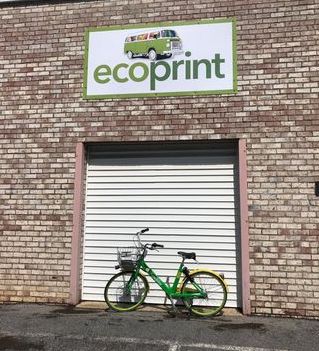
Car Free Day is an international event held every September 22 to help reduce the number of cars on the roads and encourage people to find other transportation options (train, bus, bicycle, carpool, vanpool, subway, or walking). Car Free Day is celebrated in 46 countries and over 2,000 cities. Going car-free (or car-lite in the case of carpools and vanpools) helps reduce traffic congestion and improve air quality. In recognition of this year’s Car Free Day, we’re sharing some of the environmental benefits of one alternative: e-bikes.

Environmental Benefits of E-Bikes
Over the last couple of years, e-bikes have exploded in popularity worldwide. The surge began before the pandemic and gained even more momentum as people tried to find alternate, safer modes of transportation and recreation. If you were in the market for a bicycle in the spring and summer of 2020, you know that supply was low and demand was through the roof. Even in the Netherlands, where there are more bicycles than people, almost half of all bikes sold today are electric.
While you can’t beat a traditional bicycle when it comes to environmental friendliness and health benefits, there are some limitations. Unless you’re already fit, you can only ride a bicycle so far, so fast. And you’ll probably need a shower when you get there. E-bikes allow cyclists of all ages and fitness levels to join the fun. People who might not be able to complete a traditional bike ride to the shops or the office can do so on an e-bike, rather than defaulting back to using their cars.
This opportunity and inclusivity make e-bikes a sustainable option that’s often more feasible than a regular bike. It’s worth noting that e-bikes do have batteries that require charging (usually from a power grid run on fossil fuels), so they aren’t an eco-friendly silver bullet. But they are far less harmful to the environment than standard vehicles. Here are just a few of the environmental perks of using an electric bike over a car.

E-bikes do not release harmful emissions.
Cars emit carbon dioxide, nitrate compounds, and clouds of smog, which are harmful to the environment. These greenhouse gas emissions account for 29% of the United States’ total air pollution and are a leading cause of climate change and global warming. But e-bikes are a zero emission mode of transportation and do not release any harmful gases to the environment.
When it comes to motorized vehicles, e-bikes are the most efficient.
E-bikes require fewer materials to produce than cars—including electric cars—and run on far less energy. According to Christopher Cherry, professor of civil and environmental engineering at the University of Tennessee at Knoxville, “e-bikes are really among the most energy-efficient motorized mode of transportation out there. There’s really no other vehicle that has the same low level of energy requirements as an e-bike.”
E-bikes save roadways (and tax dollars).
Electric bikes are lighter than cars, so they cause less damage (if any) to roads. When cars and other heavy vehicles damage the road, we have to bring in industrial machines to repair them. Not only do these machines release polluting fumes and emissions, they (and the repairs they do) are expensive. Virginia’s Department of Transportation (VDOT) alone spends over $2 billion a year for road maintenance and operations.
Whether you choose to bike, walk, bus or ride-share, we hope you’ll join us for Car Free Day 2021!
Sustainably,
Bobby Firestein
